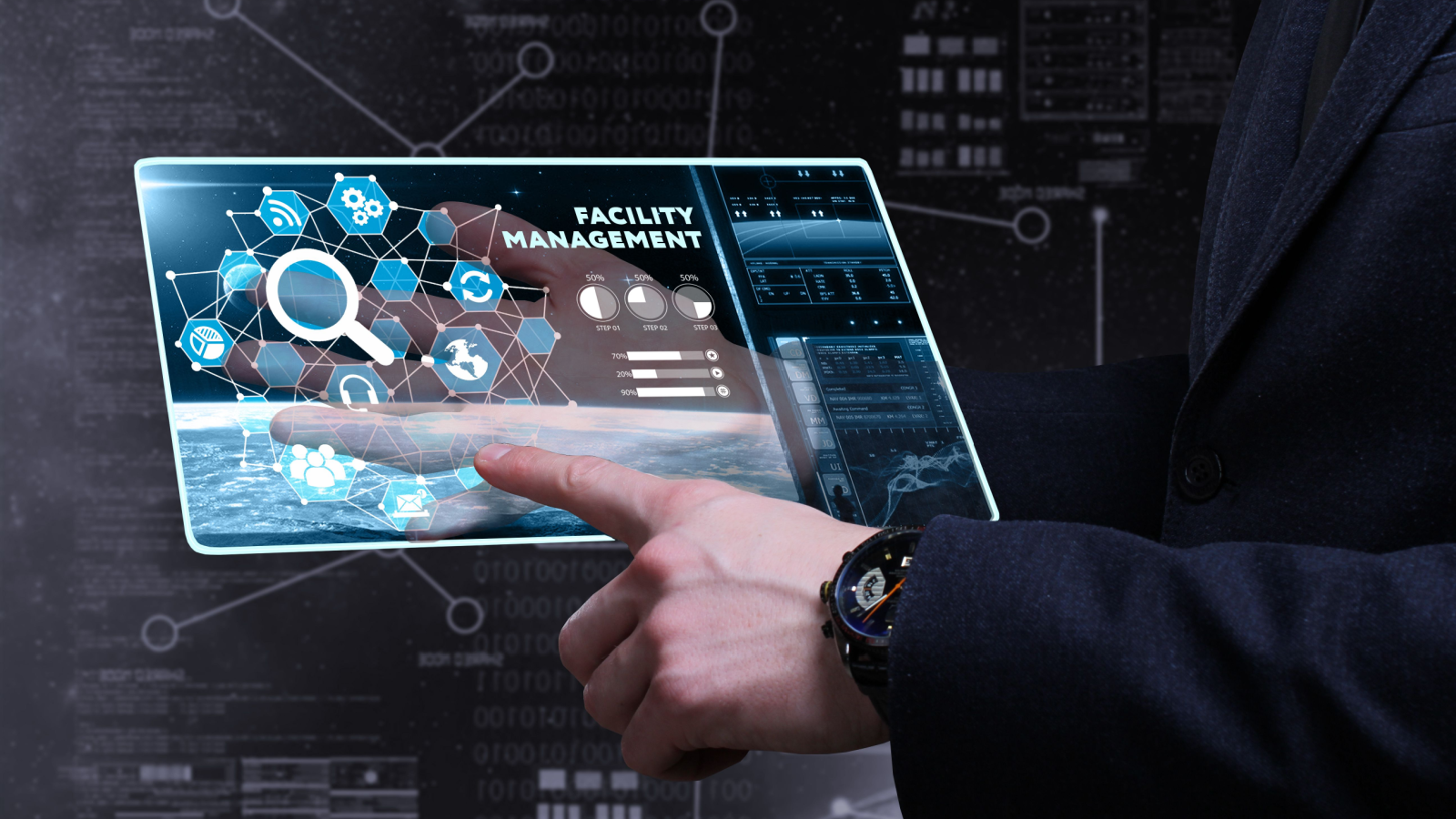Facility management: what is it and what are the main trends?
Facility management is a professional managerial skill that manages and coordinates workspaces. In doing so, the facility manager is responsible for managing spaces in such a way that they meet functionality requirements, are comfortable for employees and, above all, so that their management is functional to the company’s objectives.
What is facility management?
Behind the concept of facility management is the control of all activities that contribute, in various ways, to the pursuit of the company’s primary goals.
Defining clear-cut boundaries is very complex, since facility management is the management of all building-, people- and space-oriented services that are not part of the company’s core business.
The pillar of the discipline is therefore the management of everything that makes buildings and workspaces productive, safe, comfortable and engaging. The facility manager manages all building services, equipment, and contractual relationships with providers, from utilities to maintenance.
The typical characteristic of facility management is that it operates on services and aspects that are independent from the company’s core business, but are extremely functional to it, since they are part of a structured business system. The facility manager works to a certain extent ‘behind the scenes’, but with a role that is becoming increasingly strategic.
To cite a few examples, for the sake of simplification, activities that concern maintenance, i.e. canteen services or cleaning services, as well as the various aspects affecting safety at work, and concierge services and the like.
Why discuss facility management?
In a market that, in recent years, has demanded increased flexibility and innovation, the approach to business process management is changing for companies. As such, the facility manager is called upon to keep pace with the company’s innovation processes. Whereas in the past, facility management could simply be considered a way of managing maintenance and corporate services, today however it is obliged to consider, and rely on, modern digitisation tools, thus rethinking corporate business models and ensuring maximum competitiveness by anticipating current trends.
What are the benefits of facility management
The progressive transformation of the working paradigm has made offices and spaces increasingly central to productivity. Facility management has thus become a leading discipline, given its ability to create the right conditions for productivity, talent attraction, differentiation and competitiveness.
In more detail, facility management benefits are:
- Compliance with vast and heterogeneous legislation, much of which relates to occupational safety;
- Cost reduction related to optimal management of buildings, spaces and related services;
- Engaging work environments, which foster productivity in the era of smart and hybrid work;
- Optimised customer experience in direct customer relationship areas such as the entire retail ecosystem;
- Improved employee experience through personalised experiences;
- More well-being for people, which translates into engagement and attachment to company values;
- Talent attraction and retention.
What are facility management services?
Facility management consists of a complex set of activities divided into three macro-categories:
- Building services: these include maintenance, facility and plant-related activities. Services to the building are the basis on which the other service categories are grafted;
- Services to the space: redesign of workspaces to maximise engagement, management of environmental comfort, supplies, furniture and technological equipment for productivity (e.g. videoconferencing systems, meeting room reservation systems…);
- Personal services: these are called soft-services and include services that have a positive impact on their productivity, by improving the experience of those living in the spaces. Think of the canteen, gymnasium, reception, etc.
Within these three areas falls an endless list of activities managed by the corporate facility management structure. Here are some of them, without any claim to exhaustiveness:
- Cleaning service management;
- Canteen management;
- Ordinary and extraordinary maintenance;
- Documentation and contract management with external service providers;
- Management of security and surveillance services;
- Purchasing supplies;
- Company access management;
- Maintenance of company green areas.
Facility management and corporate security
The role of the Facility Manager is crucial in safeguarding corporate security, coordinating access control, and ensuring the protection of the company’s people and assets. Tasks such as attendance verification and environmental compliance with current regulations fit into a framework of activities that includes risk consulting and management. Also essential is their role in training for health and safety at work, indispensable aspects in the current context.
The differences between property management and facility management
The differences between property management and facility management are not always immediately clear. While the latter, as we have seen, focuses on the maintenance and optimization of the building’s infrastructure, ensuring efficient operational management, property management centres on activities related to the building as a property. In particular, this includes financial aspects related to the property itself, such as rent management and financial performance analysis, as well as maintaining relationships with tenants.
The facility manager and his trends
The facility manager has to take into account the context of strong change they operate in with the advent of digital transformation and the consequent change of various references. They have to protect the services needed by the company, paying particular attention to planning. In planning services, the manager must combine the effectiveness of the solutions with increased business productivity to make the company more competitive in the market. The analysis aspect becomes strategic, evaluating the available data as well employee impressions.
After optimising the management of the responsible facilities, the service distribution falls back onto the facility management, by which services are operationally best delivered.
Finally, every management aspect must take into account the economic and financial aspects, ranging from expenditure forecasts to the preparation of the necessary budgets, in order to achieve the results envisioned by the company.
In a rapidly evolving landscape, facility management is also embracing new key trends that shape the future of the industry. For example, let’s consider some of them.
- Mobility and flexible spaces: adapting spaces to meet dynamic needs;
- Sustainability: integrating eco-friendly practices in the management and maintenance of facilities, with significant energy savings where possible;
- Smart buildings: creating intelligent buildings that autonomously optimize energy consumption and ensure maximum comfort;
- Big Data: using advanced data analysis to predict maintenance needs and optimize resource management.
Facility management and digital transformation
In order to better understand how digital transformation is influencing, and will increasingly influence in the near future, facility management processes, it is necessary to analyse what the boundaries of space management will be in more depth. It will be necessary to take note of how environments, as well as services, will be experienced and used in everyday working life by people.
Digital innovation is posing a considerable set of challenges for facility managers. The sector in Italy is constantly growing, both in terms of turnover and employees. By innovating and anticipating change, facility management also becomes extremely strategic in helping to generate profit.
The future of facility management
The forecasts, driven by the success of medium-sized companies, return figures with a clear positive sign for the next three years. A recent survey by Ifma Italia, reference point association for Italian facility management, estimated that expenses in the facility management sector exceeded 37 billion euro and, within the next four years, could exceed 60 billion.
Big data, robotics, artificial intelligence, but also a far more inclusive phenomenon in the technological sphere such as the Internet of Things are helping to transform the way facility management is organised and evolves.
The ability to plan and the standardisation of situations, in such a clearly evolving context, will become two key factors in the near future. The figure of the facility manager is rapidly evolving and today no longer coincides, as it did in the past, with the operationally oriented manager who manages problems as they arise. Today, digital tools enable detailed analyses that can considerably increase performance. Decisions can thus be made through the evaluation of data and trends that allow critical issues to be anticipated before they occur, facilitating their management.
If you want to know more, contact us now!
 English
English

